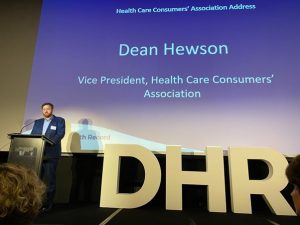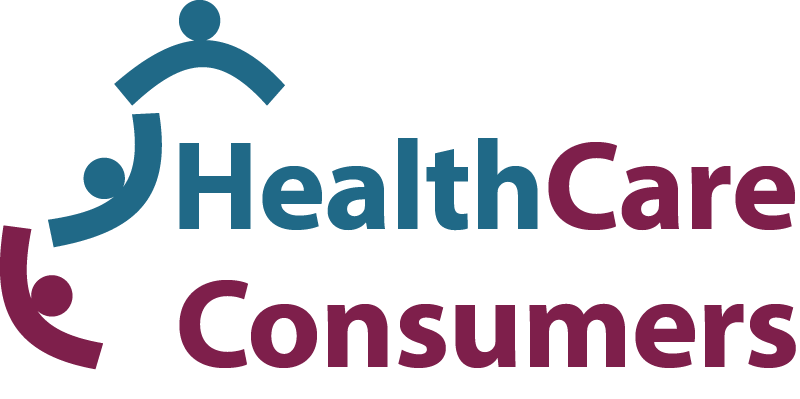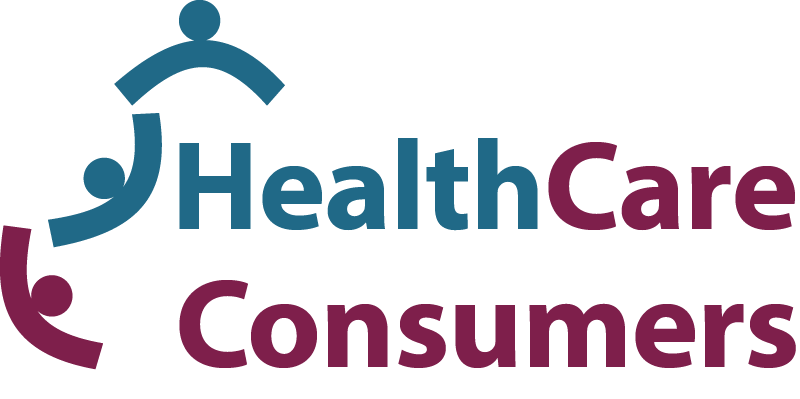Publications
Digital Health Record Launch Speech by Dean Hewson
9 February 2021
 Address given by Dean Hewson at the Digital Health Record Symposium, 8 February 2021.
Address given by Dean Hewson at the Digital Health Record Symposium, 8 February 2021.
Thank you Wally for the stirring acknowledgement of country, thank you to Peter O’Halloran and ACT Health for inviting me to say a few words, and thank you all for joining us here today.
I would like to also acknowledge the traditional owners and custodians of the land on which we meet. I pay my respects to their elders past, present and emerging, and acknowledge other Aboriginal and Torres Strait Islander people who are part of today’s event.
One truth many hold dear is that change is the only constant – I am only 34 and I think this was the beer garden when I was studying here. Now settled back in with my wife and kids like a salmon returning upstream, I am very grateful for some of the changes I have seen as Canberra’s health system has continued to evolve.
Some things do not change though. No matter how digitally enabled a health system is, at its heart will always be people; people, the time we share, the care and support we give each other, the relationships we forge, and the communities we build and are built up by.
Change
So what could change – what should change – about our health care in Canberra with a health system underpinned by something like the Digital Health Record? What makes a digital health record more than just a computerised version of the paper based or digital yet disconnected records most of us are familiar with?
Some might say it is the patterns, the trends that can be found in and between comprehensive and connected datasets – the ability to see where we each fit in a bigger picture, a chance to see more clearly the contributing factors and similarities between our health challenges and those faced by others.
Others might say it is the time and effort saved in having to look around for information, or having to tell the same story to a new clinician less frequently.
The more savvy among us might even point out that it is about making a synchronous relationship asynchronous – from being able to consider the health decisions in front of us not just in the middle of an appointment, but later that night, or a week later, or over a coffee with a trusted confidante – in our more quiet moments with more time and space to think.
And none of them would be wrong. Those are truly worthy advances that a Digital Health Record should support.
The crux
But the crux of it, the beating heart at the centre of what we must help a Digital Health Record to enable is the fundamental, deep shift it can drive in the relationships between the people who need health care and the people who provide it.
With an effective Digital Health Record, and professionals and consumers who have engaged in developing the processes and mindsets needed to use it, we can change the way we relate to one another.
From one to one care, to a team. From a consumer, to a partner. From a patient in crisis acting like a hub in a wheel, carrying test results and x-rays from one part of the health system to another – at times carrying the greatest burden when we are at our most vulnerable, when we have the least capacity to carry it – to that information being available to those who need it and those we want to see it whenever suits.
I have heard a lot about digital health empowering consumers, and some about it empowering clinicians too. But I believe its biggest strength is in how it can empower the partnership – if we are brave enough to keep walking down this road and make improvements, hand in hand. The only way to reach the connected, accessible, safe and high quality digital health future we want is to take part in building it. I am sure you will hear more from Peter on this, as I know he views this as not an IT project so much as a fundamental change to the way healthcare is delivered.
The system we have today is the result of a lot of blood, sweat and tears – and it is fundamentally a pretty good one, with of course room for improvement. When making change, it is important not to fall into the trap of failing to make improvements by holding a digital health system to a perfect future state, rather than comparing it to what we currently have. When it comes to something as complex, vital and personal as health care we have a responsibility to be more than good. We have to figure out how to be great – but we cannot always know how to be great from day one.
Challenges
There are many challenges on this road that we will have to face together. Access to care. Improving the rates of digital inclusion and digital and health literacy needed to engage with a digital health system. Careful consideration of privacy, balanced against the significant benefits of information being available. Effectively monitoring and evaluating the quality and safety of the changing system to ensure the best outcomes for consumers as we automate or otherwise digitally augment parts of the system.
There are two core challenges that I hope we can keep in mind as we continue along our digital health journey.
- How do we enable people more agency and flexibility to make decisions on their health care, while also maintaining the right guardrails and the ability to take a ‘doctor knows best’ approach when it’s wanted or needed?
- How do we address the biases inherent to the digital algorithms and human perceptions based on data to improve our decision-making and ensure the system continues to become more equitable, more just, and deliver consistently better outcomes?
Not I, nor anyone else has all the answers to these hard questions. We will only figure them out together, over time, working hand in hand.
The takeaway
What I want you to take with you as we embark on this next step in our health system’s digital journey together is this:
We all care. We all have roles to play in achieving the best possible health outcomes. A digital health record focused on consumer outcomes and experience is certainly fundamental to this.
A shift in how we provide and receive health care is possible, and it is a shift I think we all want, and it is a shift that Digital Health Record should help enable. But that shift will not be able to be completely defined before we start, only as we go.
So, let’s make sure we go together.
Dean Hewson

